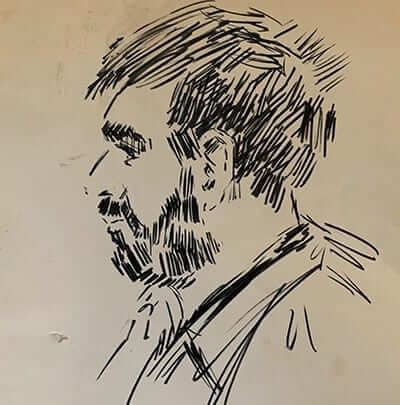The best-selling artist of all time appears outside the northwest gate of the White House. He enters the Oval Office, whereupon the president listens to the artist—who is a drug addict—condemn drug addicts. That the artist also initiated a relationship with a 14-year-old child, whom he allegedly plied with speed and sleeping pills, is beside the point.
But enough about Elvis Presley. Let us talk of Michael Jackson. Let us talk of “Leaving Neverland”—a documentary in name only—in which Wade Robson and James Safechuck claim, contra sworn testimony, that Jackson molested them. Let us talk about the power of film to propagate lies by exploiting people’s emotions.
Let us talk first about the difference between what sounds true and is true, because evidence is more sound than the sound of what someone believes but cannot prove; because it is unsound to accept testimony without proof, rather than proving—with physical evidence—that a person’s testimony is the whole truth and nothing but the truth; because I neither believe Robson nor Safechuck; because I hate the sound of Safechuck’s voice—I hate his passive-aggressive monotone—which would not matter if he could prove what he alleges.
I hate filmmaker Dan Reed’s omissions of fact, starting with his introduction of a smiling Safechuck. The segue from Sodom (by way of Beverly Hills) to the innocence of Simi Valley, which Safechuck calls a “little town,” is one of several tells in a story that sounds (to me) as rehearsed as anything Jackson recorded.
Less rehearsed, because the sign of a great performance is the absence of error—or an error too minor for anyone but a professional to notice—while Safechuck omits two facts about his little town: that it was the prologue to the worst riot in U.S. history, on the one (sequin-gloved) hand, and the epilogue to the most popular presidency of the second half of the 20th century, on the other; that footage of Jackson receiving the Presidential Public Safety Commendation is incomplete because Reed does not show—and Safechuck does not mention—that the president who issued the award is the same man whose library and burial place is in Simi Valley—atop a hill, like a shining city upon a hill—attracting 383,000 visitors annually.
What sounds extraneous is, in fact, essential, given Reed’s choice of visuals and Safechuck’s choice of words. About the latter, Safechuck says his father worked at a rubbish company, “a family rubbish company that my grandfather started.” His father, James Robert Safechuck, Sr. died on March 27, 2016. He was (as of March 29, 2011) vice president of Anderson Rubbish Disposal, one of two companies owned by the Anderson family. The other company, Moorpark Rubbish Disposal, serviced an area neighboring Simi Valley. Waste Management bought both companies and announced the acquisition a year ago. Prior to the acquisition, the Simi Valley City Council approved Anderson’s request to transfer its trash hauling and recycling franchise agreement to G.I. Industries, doing business as Waste Management (NYSE: WM), creating a trash hauling monopoly in the city. The combined population of Simi Valley and Moorpark, according to the United States Census Bureau, is 163,680. That number is greater than the population of Kansas City, Kansas (152,938).
So much for Safechuck’s “little town” and his grandfather’s rubbish company. (I spoke to and emailed a representative of Waste Management, but did not receive an answer about whether Safechuck, Sr. was an owner or part-owner of Anderson.)
What is rubbish is Safechuck’s comment that Jackson’s lawyers told him what to say—that they told him what not to say—so counsel for the plaintiff could not prove what they did not know: that Jackson molested a child. The legal term for what Jackson’s lawyers allegedly did is subornation of perjury, which is a felony punishable up to four years in a California state prison.
The artistic term for what “Leaving Neverland” requires is suspension of disbelief. To believe extraordinary claims without extraordinary evidence violates Richard Feynman’s warning that the first principle is that you must not fool yourself—and you are the easiest person to fool. Do not support what you cannot substantiate, unless you agree to believe every accusation—by every accuser—regardless of politics or personal agendas.
That means you have no right to question what someone says, because the truth of an accusation is never in question. In such a land, where the absence of evidence is an afterthought, do not say what others dare not think: that you find it impossible not to have second thoughts about agreeing to never think again.

